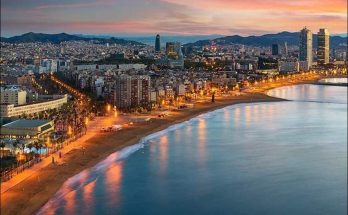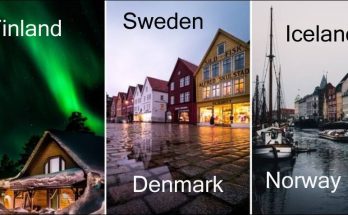Why such a separation? The difference between North and South is not greater in Italy than in France or in the United States; and it is less than in Germany. But in Italy the actual division is perhaps more clear cut; which would explain how the French of Charles VIII could sing: “Nous conquerons les Ralies…” But if the division is sharper it has nothing to do with pretended differences of “race”, that is to say, of Greek influences in the South and Germanic or Celtic in the North. The reasons are historical and incidental: namely, that the States of the Church dividing the peninsula in two, separated the Neapolitan Kingdom from the rest of Italy in a more radical way than the division between Piedmont and Lombardy or between Liguria and Tuscany.
The full material reunion of the whole peninsula was the result of the railways. One day, in a dream à la Rousseau, Napoleon imagined that Calabria, Sicily and Sardinia were moved towards the coasts of Latium and Tuscany, swelling out an Italy too elongated for his taste as a collector of cannon-fodder. One of the principal merits of the Liberal governments from 1860 to 1890 was the creation of a vast net of rapid communications from the Cenis to Trapani, and they did this with a series of bridges, galleries and other engineering feats more complicated and costly than in any other country of Europe.
It was probably the long period of the isolation of the “Kingdom ” — as the country from Velletri southward is called — that made of our South an island of philosophers and thinkers, from Giordano Bruno and Campanella to Vico and Benedetto Croce. Among the philosophers of Northern Italy in the first half of the nineteenth century, such as Rosmini or Gioberti, foreign influences are very visible. It is not so in the South, where Benedetto Croce himself has only taken from Hegel a certain amount of material for the elaboration of a new way of thought.
Those who, half astonished and half disgusted, are saddened by the haughty attitude that certain Northerners assume towards the Southerners, ought to feel rather pity than anger. It is everywhere thus; a stupid industrial of Flanders thinks that he is better than the most intelligent Provençal; a merchant of Barcelona laughs at the poetical vein that makes life in Andalusia so charming; a fat Prussian grumbles at the beer-house: “The Bavarians are the link between a man and an Austrian…”
It is for us Italians of the North to remember and to cause to be remembered that it is the South which has given to Italy the purest champions of the things of the mind — to begin with the anatomists of the School of Salerno, who first in Europe braved the fury of the ignorant by going in the darkness of the night to the cemetery to steal the corpses by which they might learn the secrets of life; that it is the South which has given us the earliest and most devoted martyrs of our Risorgimento, among them those who were hanged under the Republic of 1799; that from their ashes arose, as avengers, the Spaventa, the Settembrini, the De Sanctis and all the rest.
For my part, if it were not that my stay between Bari, Salerno and Naples was made longer by a far too slow military tactic for which Italy had to pay with cities destroyed, due to the blindness and fixed ideas of certain foreign governments, I could bless heaven that I remained for two years in the midst of a civilization far more refined than our own. I do not believe that there was in any other spot in Italy a refuge like that of my house at San Pasquale a Chiaia, a refuge from which, through idleness, I did not descend into the shelters even during the most violent bombardment, but in which I had to pass a night in which I had the responsibility of the life of Croce, for two days my guest at Naples; we went down, the shelter was full of people — doctors, professors, lawyers, the typical Neapolitan middle classes — and Croce began to tell anecdotes of the time of Ferdinand II and then to discourse on Belli and Porta, of whom his hearers knew little; and when the alert ceased, all said: “What a pity ! Let us hope for tomorrow evening…”
Visits: 103



